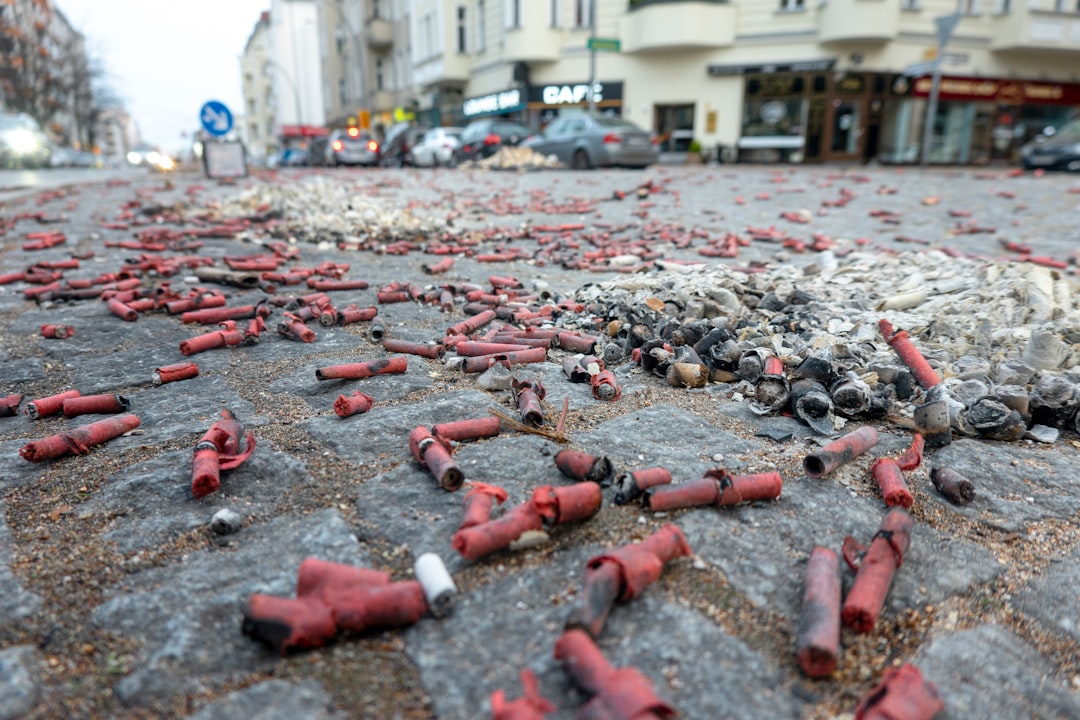
The Story
New Year in Germany is normally an unhinged affair. Even in small towns, Silvester is celebrated with alcohol-fuelled, do-it-yourself firework events in which adults and children alike merrily blast rounds of rockets into the sky.
The level of anarchy - and the fact that authorities let it happen - leaves foreigners rubbing their eyes in disbelief.
But in Berlin the merriment often seems more sinister. In the streets of the capital, people aim projectiles at windows, teenagers compete to see who can set off powerful “Polish bangers” closest to unsuspecting passers by, and police sirens provide constant background music to the whole occasion.
This year, that latent aggression escalated into all-out madness.
Youths set up burning barricades on the streets and then attacked fire crews who arrived to extinguish the flames.
One fireman told of how his truck arrived at the scene of a fire in the Neukölln district only to be attacked with fireworks from all sides. When the crew attempted to evacuate the truck, masked men attacked them and then tried to loot their vehicle.
In the same neighbourhood, video footage shows an ambulance being attacked as it tries to bring a patient to hospital. As it navigates a hail of fireworks, one rioter smashes a fire extinguisher through the windscreen.
Dozens of emergency service personnel were injured over the course of the night. In one case, a police officer needed to be treated in hospital for severe burns to his neck.
The fact that the worst violence took place in the migrant neighbourhoods of Neukölln and Kreuzberg has reignited old debates over whether the rioters' cultural background played a role.
What has the reaction been?
This was an accident waiting to happen, argues criminologist Thomas Feltes in Der Spiegel. These are “marginalized” young men full of the “bottled up anger due to three years of Covid restrictions”. They feel the widening gap between rich and poor. Alcohol and the anonymity of a dark winter night proved too enticing an opportunity to miss. “If we’re not careful we’ll lose this part of society completely,” Feltes warns. But, until we address the social ills causing this malaise, “it is a good idea to think about banning fireworks in big cities.”
Ban fireworks if you like, writes Wolfgang Büscher in Die Welt, "but doing so means that we are closing our eyes to what is really going on." The problem here is not fireworks, it is the migrant youth who fire them horizontally instead of vertically. "That's not hogmanay, that's civil war." These young migrants are steadfast in their Turkish or Lebanese identity and they sense that Germany is a society unsure of itself. "When they attack our fire departments and police officers, they celebrate their own identity over ours."
What’s really going on?
Much of the reaction has been predictably partisan.
The left blame politicians for failing to integrate these poor “marginalised” youths who can't be held responsible for their own actions. The right use it to imply that Muslims are just too different to fit into German society.
But what is going on here is the same thing that has happened in immigrant neighbourhoods around the world for decades. It could be the story of the Bronx or the East End of London.
Neukölln is the first port of call for migrants who flock to Germany from across the Middle East and Africa. It is a cacophony of languages, religions and cultures. In its famous bars, party goers order their drinks at the front and their cocaine at the back.
Mafia families, who arrived from Turkey and Lebanon in the 1980s, supply the middle classes with drugs, launder money through betting shops, and prey upon newly arrived immigrants.
On social media the crime bosses present a glorified picture of their lives, replete with all the cliches of mafia life: sports cars, rooftop pools... and baby tigers.
For some young men, this is the lifestyle they want. Attacking the police is a way of gaining credibility.
No amount of state money thrown at "integration projects" is going to change the hard reality that mafias will always have a certain allure in neighbourhoods where the route to the very top of society otherwise seems unattainable.
Banning fireworks in Neukölln might seem like a lazy solution to this deeper social problem. But it's also probably the only one that has a realistic chance of success.
This is a free email to everyone on my mailing list, please share it to help grow my audience.




Germany wake up, if you don't stop this now Turkish or Lebanese people have no respect for German authorities, they don't have respect now and will never have.
Spot on, methinks.